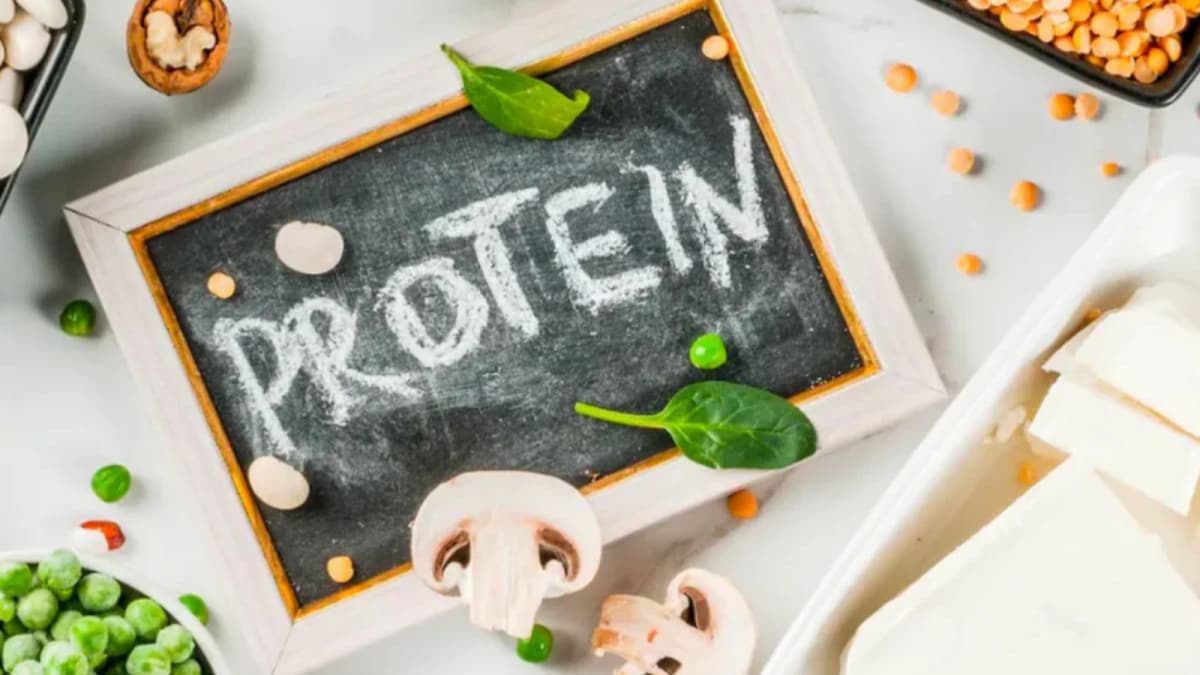Protein Confusion: Do Indians Really Need Supplements Or Just Better Diets?

Last Updated:July 21, 2025, 16:10 IST
For most Indians, the key to better health doesn’t lie in supplements but in a diverse, balanced, and nutrient-rich diet
In India, however, there’s a lot of confusion around protein intake. While gym-goers often stock up on tubs of protein powder, many vegetarians worry they aren’t getting enough protein.
Protein is known as the “building block” of the body because it is essential for muscle recovery, hormone production, immune function, and overall growth. In India, however, there’s a lot of confusion around protein intake. While gym-goers often stock up on tubs of protein powder, many vegetarians worry they aren’t getting enough protein. Others question whether supplements are necessary at all, or if a balanced diet can provide adequate protein without the need for powders or pills.
Nidhi Sahai, Head of Clinical Dietetics & Nutrition at Max Super Speciality Hospital, Vaishali, shares all you need to know:
Are Indians Consuming Enough Protein?
Multiple national surveys suggest that a significant portion of the Indian population does not meet the recommended protein intake. The Indian Council of Medical Research (ICMR) recommends approximately 0.8 to 1 gram of protein per kilogram of body weight for healthy adults. However, several studies indicate that many urban and rural Indians—particularly women, vegetarians, and older adults—fall short of this target.
This gap is often not due to a lack of available protein sources, but rather diets that are heavily skewed toward carbohydrates (such as rice, chapati, and potatoes) and lacking in high-quality protein.
Do We Really Need Protein Supplements?
Not necessarily, especially if you’re a healthy individual who isn’t engaged in intense physical training. A well-planned and balanced diet can meet the protein needs of most people. Many natural sources of protein can easily be incorporated into daily meals, including:
Lentils and legumes (dal, chana, rajma)
Dairy (milk, paneer, curd)
Eggs, chicken, and fish
Soy products (tofu, soy chunks)
Nuts and seeds
When Are Protein Supplements Useful?
Protein supplements may be helpful in specific situations, such as:
Athletes or bodybuilders who need increased protein intake
Elderly individuals with poor appetite or chewing difficulties
Post-surgery patients needing faster recovery
Individuals with medical conditions or protein deficiencies—under professional supervision
However, excessive or unnecessary supplementation, especially without proper guidance, can overburden the kidneys and lead to digestive discomfort or imbalances.
What’s the Real Need? Better Food Literacy and Balanced Meals
Instead of rushing to the supplement aisle, most people would benefit from a greater understanding of how to build balanced meals. Consider the following tips:
Include a protein source at every meal
Combine cereals with pulses (e.g., rice + dal, roti + besan)
Incorporate curd, milk, or buttermilk daily
Choose nutritious snacks like roasted chana, boiled eggs, or nuts
Limit ultra-processed foods that offer calories but little nutritional value
While protein powders offer convenience, they cannot replicate the holistic benefits of real food which also provides essential micronutrients, antioxidants, fiber, and other vital compounds that support overall health.
For most Indians, the key to better health doesn’t lie in supplements but in a diverse, balanced, and nutrient-rich diet. With greater awareness and mindful eating habits, we can meet our protein needs naturally—one wholesome meal at a time.

Swati Chaturvedi, a seasoned media and journalism aficionado with over 10 years of expertise, is not just a storyteller; she’s a weaver of wit and wisdom in the digital landscape. As a key figure in News18 Engl…Read More
Swati Chaturvedi, a seasoned media and journalism aficionado with over 10 years of expertise, is not just a storyteller; she’s a weaver of wit and wisdom in the digital landscape. As a key figure in News18 Engl… Read More
view comments
- First Published:
[title_words_as_hashtags



